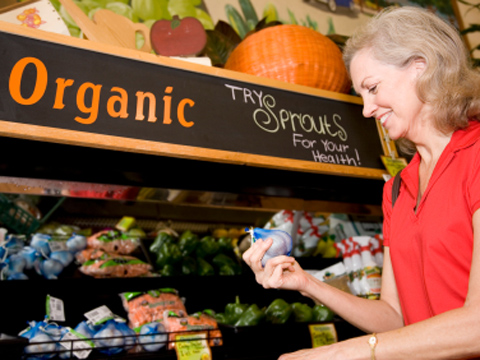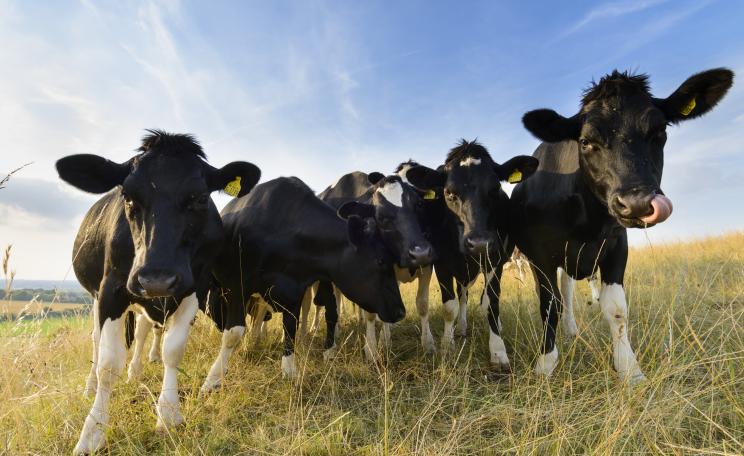Organic milk was one of the few sectors to show any growth in sales value in 2009
UK organic sales figures dropped by 13 per cent in 2009 after more than 15 years of continuous year-on-year growth.
The biggest falls were in sales of bread (-39 per cent), chilled foods (-21 per cent) and poultry (-28 per cent). Organic egg sales also fell by 20 per cent but free-range sales continued to increase indicating consumer demand for higher-welfare eggs.
However, organic milk sales did show a 1 per cent growth despite an overall decline in the value of dairy sales.
According to the Soil Association's annual Organic Market Report, the total value of organic products sold last year was £1.84 billion compared to the record high of £2.1 billion in 2008.
Supermarket sales dropped by 12 per cent year-on-year but still accounted for more than 70 per cent of all sales in 2009. Independent retailers and farmers' markets suffered bigger drops of around 20 per cent in organic sales.
Fairtrade growth
The decline in organic sales in 2009 contrasts with a 12 per cent rise in fairtrade sales over the same period. In February, the Fairtrade Foundation reported total retail sales worth £800 million for 2009.
Despite the decline, the Soil Association expects the market to recover during 2010 and grow by between 2-5 per cent.
'Confidence is now returning, and with the growing recognition of the need for environmentally sustainable production systems that are less reliant on fossil fuels, we are confident that the organic market, having weathered the recession, will return to growth,' said policy director Peter Melchett.
Non-food growth
Away from food, organic health and beauty products grew by a third to £36 million. Textile sales, estimated to be worth £100 million, remained static in 2009.
The Soil Association's market report also reported a survey of why consumers buy organic. The top three reasons given were that produce is unprocessed, the regulations mean that the use of pesticides is restricted, and that products generally taste better.
Animal welfare issues and the exclusion of genetically-modified products were ranked seventh and eighth respectively.
Useful links
Organic market report 2009
| READ MORE... | |
 |
COMMENT Organic farming has sold out and lost its way The dreams of the early organic pioneers have been subsumed into a rush for global supply chains, strict regulations and fast-selling brands |
 |
GREEN LIVING What is biodynamic wine, and which bottles should you pick? Its principals may seem strange but biodynamic winegrowers are in a league of their own when it comes to caring for soil, plant and planet. Plus, 10 wines to try in 2010 |
 |
GREEN LIVING Each day, you have three votes to change the food system In this extract from Stuffed, Michael Pollan spells out the simple rules for buying and eating real food |
 |
GREEN LIVING How to decode food labels and shop with a conscience Is it healthy? Is it organic? Is it fairly traded? How far has it travelled? At times, making informed choices can feel like a full-time job. Here is a pocket guide to buying food from the new book Stuffed |
 |
NEWS Most UK milk already from industrial-sized dairy farms 'Biggest not always best' says dairy industry as new super-dairy is proposed for Lincolnshire |








